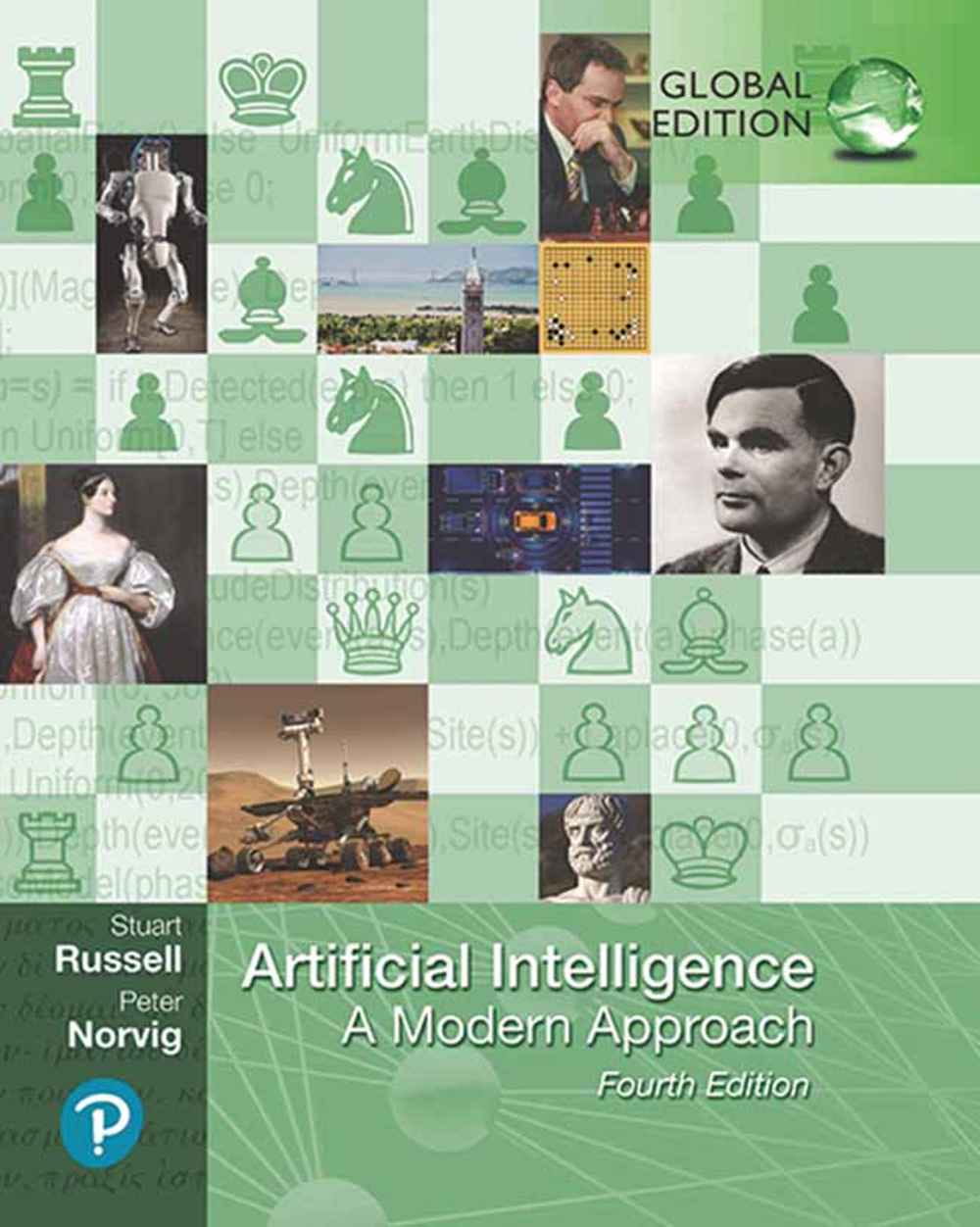- 定價200.00元
-
8
折優惠:HK$160

|
|
|
|
ARTIFICIAL INTELLIGENCE: A MODERN APPROACH 4/E (GE)?
|

|

沒有庫存
訂購需時10-14天
|
|
|
|

|
|
9781292401133 | |
|

|
|
RUSSELL,NORVIG | |
|

|
|
全華圖書 | |
|

|
|
2021年7月21日
| |
|

|
|
487.00 元
| |
|

|
|
HK$ 462.65
|
|
|
|
|

| |
|
|
|
|
| |
|
|
詳
細
資
料
|
ISBN:9781292401133叢書系列:大學電子規格:平裝 / 1170頁 / 17 x 23 x 5.85 cm / 普通級 / 全彩印刷 / 4版出版地:台灣
大學電子
|
|
分
類
|
專業/教科書/政府出版品 > 電機資訊類 > 資訊 |
同
類
書
推
薦
|
|
|
內
容
簡
介
|
The most comprehensive, up-to-date introduction to the theory and practice of artificial intelligence
The long-anticipated revision of Artificial Intelligence: A Modern Approach explores the full breadth and depth of the field of artificial intelligence (AI). The 4th Edition brings readers up to date on the latest technologies, presents concepts in a more unified manner, and offers new or expanded coverage of machine learning, deep learning, transfer learning, multiagent systems, robotics, natural language processing, causality, probabilistic programming, privacy, fairness, and safe AI.
本書特色
Offer the most comprehensive, up-to-date introduction to the theory and practice of artificial intelligence
• Nontechnical learning material introduces major concepts using intuitive explanations, before going into mathematical or algorithmic details. The nontechnical language makes the book accessible to a broader range of readers.
• A unified approach to AI shows students how the various subfields of AI fit together to build actual, useful programs.
• UPDATED - The basic definition of AI systems is generalized to eliminate the standard assumption that the objective is fixed and known by the intelligent agent; instead, the agent may be uncertain about the true objectives of the human(s) on whose behalf it operates.
• In-depth coverage of both basic and advanced topics provides students with a basic understanding of the frontiers of AI without compromising complexity and depth.
• The Author-Maintained Website at http://aima.cs.berkeley.edu/ includes text-related comments and discussions, exercises, an online code repository, Instructor Resources, and more!
• UPDATED - Interactive student exercises are now featured on the website to allow for continuous updating and additions.
• UPDATED - Online software gives students more opportunities to complete projects, including implementations of the algorithms in the book, plus supplemental coding examples and applications in Python, Java, and Javascript.
• NEW - Instructional video tutorials deepen students’ engagement and bring key concepts to life.
• A flexible format makes the text adaptable for varying instructors preferences.
Stay current with the latest technologies and present concepts in a more unified manner
• NEW - New chapters feature expanded coverage of probabilistic programming (Ch. 15); multiagent decision making (Ch. 18 with Michael Wooldridge); deep learning (Ch. 21 with Ian Goodfellow); and deep learning for natural language processing (Ch. 24 with Jacob Devlin and Mei-Wing Chang).
• UPDATED - Increased coverage of machine learning.
• UPDATED - Significantly updated material on robotics includes robots that interact with humans and the application of reinforcement learning to robotics.
• NEW - New section on causality by Judea Pearl.
• NEW - New sections on Monte Carlo search for games and robotics.
• NEW - New sections on transfer learning for deep learning in general and for natural language.
• NEW - New sections on privacy, fairness, the future of work, and safe AI.
• NEW - Extensive coverage of recent advances in AI applications.
• UPDATED - Revised coverage of computer vision, natural language understanding, and speech recognition reflect the impact of deep learning methods on these fields.
?
|
|
目
錄
|
I Artificial Intelligence
?1 Introduction
?2 Intelligent Agents
II Problem-solving
?3 Solving Problems by Searching
?4 Search in Complex Environments
?5 Constraint Satisfaction Problems
?6 Adversarial Search and Games
III Knowledge, reasoning, and planning
?7 Logical Agents
?8 First-Order Logic
?9 Inference in First-Order Logic
?10 Knowledge Representation
?11 Automated Planning
IV Uncertain knowledge and reasoning
?12 Quantifying Uncertainty
?13 Probabilistic Reasoning
?14 Probabilistic Reasoning over Time
?15 Making Simple Decisions
?16 Making Complex Decisions
?17 Multiagent Decision Making
?18 Probabilistic Programming
V Machine Learning
?19 Learning from Examples
?20 Knowledge in Learning
?21 Learning Probabilistic Models
?22 Deep Learning
?23 Reinforcement Learning
VI Communicating, perceiving, and acting
?24 Natural Language Processing
?25 Deep Learning for Natural Language Processing
?26 Robotics
?27 Computer Vision
VII Conclusions
?28 Philosophy, Ethics, and Safety of AI
?29 The Future of AI
?Appendix A: Mathematical Background
?Appendix B: Notes on Languages and Algorithms
?Bibliography
?Index
|
|
|
書
評
|
|
|
|
|

